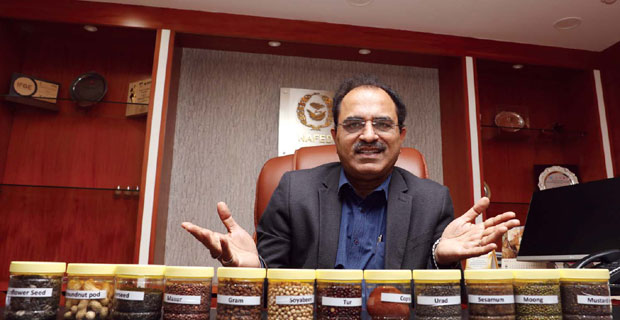“Procured highest volumes of pulses in history of nation”
The National Agricultural Cooperative Marketing Federation of India (NAFED) has been engaged in procuring rabi crops, pulses and oilseeds very effectively even during the lockdown caused by the COVID-19 pandemic. The procurement of chana and mustard, in fact, has been going on smoothly and payments are being made to farmers within three days. Earlier, Mr Sanjeev Kumar Chadha, Managing Director, NAFED, spoke to India Empire magazine’s Editor and Publisher Sayantan Chakravarty
After suffering losses in FY 2013-14 to FY 2016-17, NAFED did a major turnaround in FY 2017-18 by coming out of the red. What strategies specifically led to the change in fortunes?
Until the financial year 2015-2016, we owed around Rs 1,800 crore to banks. NAFED, at the time, was deeply in the red. Then the Government took a policy decision to create a national pulse buffer. It enabled NAFED to start doing more business, and grow our income. When our income started growing we requested the Government to freeze a one-time payment with the banks. It was finalized, we paid back to the banks and thereby ceased to be an NPA. We started making profit from 2017-2018. Ever since, there has been no looking back.
Hon’ble Prime Minister has given a call to farmers to go for more pulses to make India self-sufficient. On our part, we’ve been doing the highest volume of procurement of pulses. Interestingly, even though our staff strength did not change, yet we managed to procure the highest volumes in the history of the nation. We’d a large number of staff in the fourth pay scale, and we knew that to make a turnaround everyone had to work very hard. For about 8-10 months almost everybody was in the mandis during the Kharif and Rabi seasons. We made a profit of about Rs 200 crore.
In 2019-2020 also, everybody put in plenty of hard work. Now we’ve been adding fresh manpower from the IIMs and other management schools because people in the middle and lower levels had left us during our unprofitable years. Many took voluntary retirement. Others were retired compulsorily. Now with the new recruitments, the focus is back on building capacity at the lower and middle levels. Besides, it is imperative that going forward we sustain the volumes that we’re doing right now.











Comments.